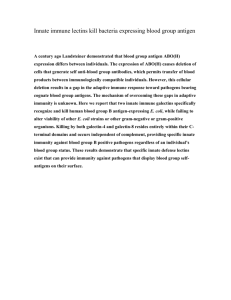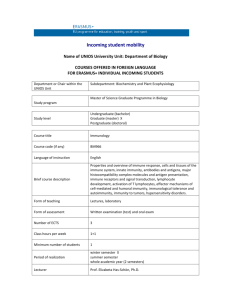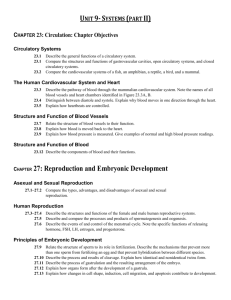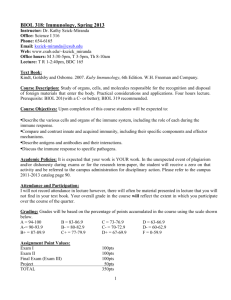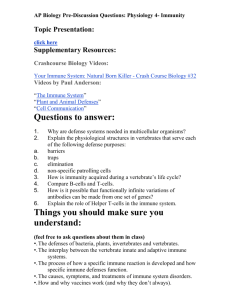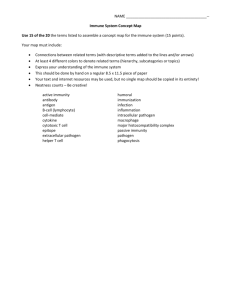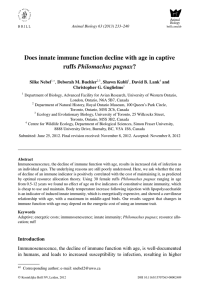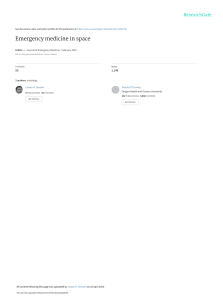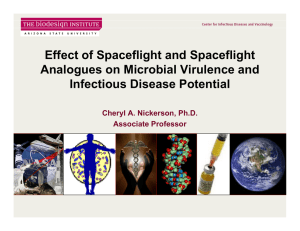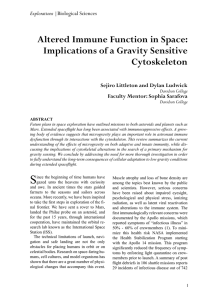THE EFFECTS OF LONG-TERM EXPOSURE TO MICROGRAVITY ON SALIVARY 4081.pdf
advertisement
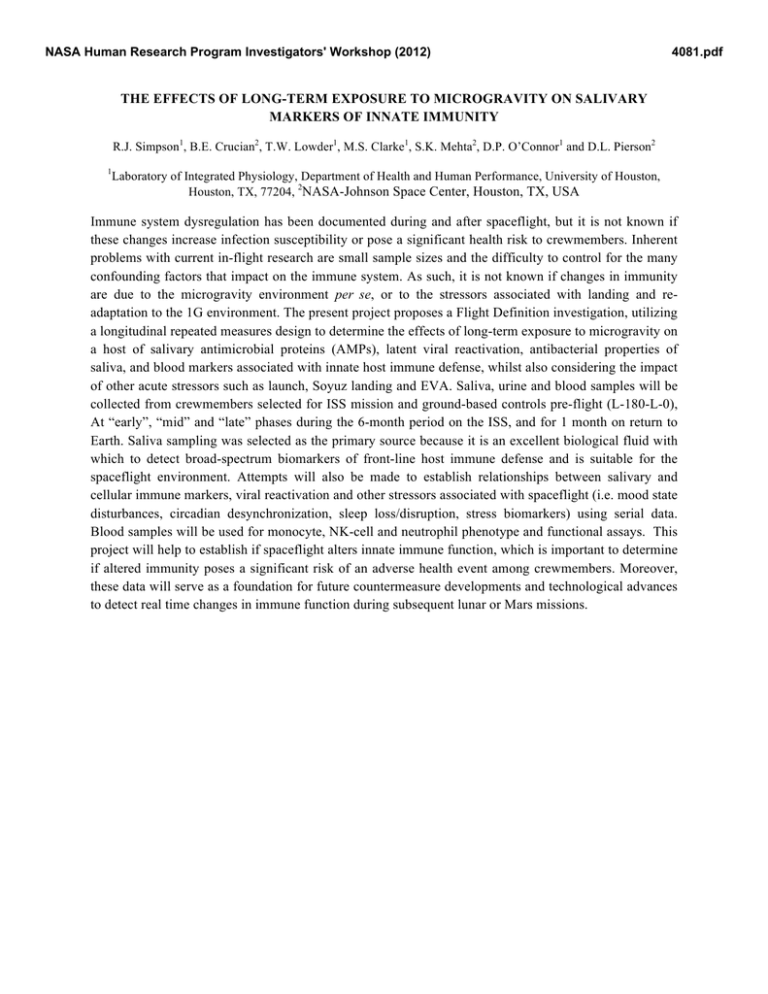
NASA Human Research Program Investigators' Workshop (2012) 4081.pdf THE EFFECTS OF LONG-TERM EXPOSURE TO MICROGRAVITY ON SALIVARY MARKERS OF INNATE IMMUNITY R.J. Simpson1, B.E. Crucian2, T.W. Lowder1, M.S. Clarke1, S.K. Mehta2, D.P. O’Connor1 and D.L. Pierson2 1 Laboratory of Integrated Physiology, Department of Health and Human Performance, University of Houston, Houston, TX, 77204, 2NASA-Johnson Space Center, Houston, TX, USA Immune system dysregulation has been documented during and after spaceflight, but it is not known if these changes increase infection susceptibility or pose a significant health risk to crewmembers. Inherent problems with current in-flight research are small sample sizes and the difficulty to control for the many confounding factors that impact on the immune system. As such, it is not known if changes in immunity are due to the microgravity environment per se, or to the stressors associated with landing and readaptation to the 1G environment. The present project proposes a Flight Definition investigation, utilizing a longitudinal repeated measures design to determine the effects of long-term exposure to microgravity on a host of salivary antimicrobial proteins (AMPs), latent viral reactivation, antibacterial properties of saliva, and blood markers associated with innate host immune defense, whilst also considering the impact of other acute stressors such as launch, Soyuz landing and EVA. Saliva, urine and blood samples will be collected from crewmembers selected for ISS mission and ground-based controls pre-flight (L-180-L-0), At “early”, “mid” and “late” phases during the 6-month period on the ISS, and for 1 month on return to Earth. Saliva sampling was selected as the primary source because it is an excellent biological fluid with which to detect broad-spectrum biomarkers of front-line host immune defense and is suitable for the spaceflight environment. Attempts will also be made to establish relationships between salivary and cellular immune markers, viral reactivation and other stressors associated with spaceflight (i.e. mood state disturbances, circadian desynchronization, sleep loss/disruption, stress biomarkers) using serial data. Blood samples will be used for monocyte, NK-cell and neutrophil phenotype and functional assays. This project will help to establish if spaceflight alters innate immune function, which is important to determine if altered immunity poses a significant risk of an adverse health event among crewmembers. Moreover, these data will serve as a foundation for future countermeasure developments and technological advances to detect real time changes in immune function during subsequent lunar or Mars missions.
